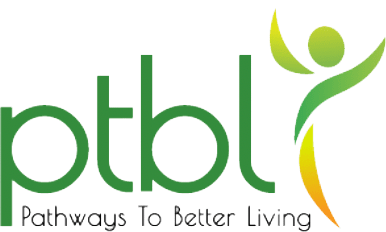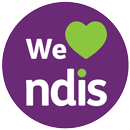Introduction
The safety of all participants and workers is our organisation’s top priority. We have an obligation to respond to pandemics in a timely and effective manner.
Pandemics are high-risk situations that develop quickly. They have the potential to severely impact the health of workers and participants. As work within the disability sector often requires close contact between workers and participants, putting in place social distancing and social isolation measures may also impact our ability to provide services. Therefore, we will ensure that our response to a pandemic is:
- pre-planned
- risk-managed
- flexible, and
- person-centred.
This policy covers the COVID-19 pandemic, which an ongoing situation that can change quickly and at short notice. Even with the rolling back of restrictions, we understand that COVID-19 remains a risk that exists within the wider community. As a support provider, we will continuously review and utilise the COVID-19 resources provided by the NDIS as well as the NDIS provider alerts to ensure we meet all required health and safety standards.
Applicability
| When |
| applies when: preparing the organisation for a pandemic undertaking any organisational activities during a pandemic. |
| Who |
| applies to all workers at every level of the organisation. |
Participant vulnerability
We understand that people with disability are more vulnerable to developing illness during a pandemic because they are more likely to:
- have complex pre-existing conditions including multiple morbidities
- have wounds
- have a compromised immune system (e.g. due to pre-existing conditions or medications)
- require the use of medical equipment (e.g. urinary catheters, tracheostomies).
We will manage risks for all our participants and take into account each participant’s wishes, goals and situation.
Preparedness and planning
As an NDIS provider, it is our responsibility and obligation to meet the NDIS Code of Conduct and NDIS Practice Standards for the supports and services we provide. During a pandemic there are a number of risks that may compromise these requirements and we therefore must adequately identify these risks and plan our response. We acknowledge pandemics pose the following risks:
- Health and safety risks: if normal business operations put our participants and/or workers at an increased risk of contracting an infectious disease.
- Operational risks: if a pandemic situation creates an environment where we are no longer able to continue our usual operations (due to government restrictions, worker shortages etc.).
- Environmental risks: if a pandemic situation compromises the safety of our service environment.
- Economic risks: if our organisation and its workers experience financial difficulties due to limited or ceased operations.
- Resource risks: if we do not have sufficient resources (e.g. human resources, PPE) to continue normal operations due to a pandemic situation.
- Compliance risks: if a disruption to normal operations due to a pandemic situation leads to non-compliance with NDIS rules and other relevant legislation.
- Reputational risks: if a lack of appropriate response to a pandemic situation impacts on the way in which our organisation is perceived in the wider community.
We will work to streamline the management of these risks by completing our organisational risks register and a pandemic management plan. This will help ensure that, in the event of a pandemic, we have a planned and coordinated response. Our pandemic management plan will identify:
- the key actions we need to take to prepare for a pandemic
- our plan for ensuring business continuity
- the names, contact details and roles of people required to ensure business continuity
- services/functions that are deemed essential
- action plans for maintaining each essential service
- skillsets required to perform essential services
- facilities required to continue essential services
- participants that are most at risk
- how we collaborate with providers and community organisations
- how we will activate our pandemic management plan.
We will review our pandemic management plan annually (at a minimum) to ensure it is current.
Basic prevention measures
There are basic hygiene and cleaning measures that we take at all times. These are recorded in detail in our infection control and waste management policies. Some basic measures that we take include:
- washing hands frequently and at relevant times
- maintaining respiratory hygiene at all times
- ensuring all areas are cleaned with appropriate tools and cleaning agents
- managing all forms of waste in a safe and suitable way
- ensuring all support and work environments are well ventilated
- wearing appropriate PPE when required.
During a pandemic we recognise that it is important to maintain a high level of hygiene and continue this when social distancing and/or isolation is required.
Social distancing
Social distancing involves restrictions on movement that may need to be enforced to prevent/slow the spread of an illness. To be effective, it must apply to all workers and participants. Social distancing typically involves:
- being at least 1.5 metres apart from others at all times
- limiting unnecessary touching (e.g. handshakes and hugging)
- if possible, limiting the number of workers on shift at one time
- limiting face-to-face meetings where possible (i.e. conducting most meetings over the phone instead)
- limiting food handling and sharing
- only going out for essential reasons such as:
- attending work/school
- purchasing food and medicine
- medical appointments
- personal emergencies
- avoiding all non-essential national and international travel
- avoiding mass gatherings
- working/studying from home if practicable.
Isolation
We may need to have a worker or participant in isolation if they:
- have been tested positive for a pandemic-level illness or are experiencing symptoms of a pandemic level illness
Home isolation typically means that the person being isolated must partake in relevant risk-minimisation measures, including:
- limiting their movements to their home and garden/backyard
- observing all appropriate hygiene measures
- practicing social distancing (as outlined above) if there are other people present in the house
- moving quickly through or avoiding common areas
- wearing masks and other necessary PPE
- using a separate bathroom, if available
- using separate cutlery, linens and towels
- avoiding food handling and sharing.
We will support workers in isolation by offering opportunities to work from home or making appropriate leave arrangements. In addition, we will provide workers with counselling and other resources as required. Although necessary, isolation can be a stressful experience. Therefore, we will ensure that participants in isolation:
- are still able to receive essential supports and services
- are isolated in a comfortable, clean and well-ventilated environment
- keep in touch with their support network via various telecommunication methods
- learn about and discuss their experience
- keep normal daily routines where possible (e.g. eating, sleeping and exercise)
- partake in home-based activities they enjoy.
Restrictive practices
Restrictive practices are used in the event that a participant responds to a situation with a behaviour of concern. These behaviours often stem from triggering factors such as a maladaptive environment, fear or in response to a real or perceived threat.
In the event of a pandemic outbreak, these factors may be heightened, thus it is our responsibility to ensure we provide comprehensive and suitable support to inform the participant of what is occurring and why certain restrictions are in place.
We will adhere to the stipulations provided by the NDIS in their Behaviour support and restrictive practices fact sheet.
If a restrictive practice is utilised, we will follow all standard debriefing, reporting and legislative procedures outlined in our restrictive practice policy.
Whilst home isolation for therapeutic reasons is not considered a restrictive practice, it is important that such requirements during these events are discussed with the participant and their support network. This applies to all participants, not only those that have restrictive practices incorporated in the positive behaviour support plan.
Incidents and complaints
We will address any complaints or incidents that arise during (or as a result of) a pandemic situation. Where possible, we will always follow the same procedures that are specified in relevant policies, processes and legislation. We will also make all reasonable attempts fast-track incident and complaint reports that arise as a result of a pandemic as reports of this nature are likely to be urgent and time-sensitive.
Privacy and confidentiality
We are committed to maintaining privacy and confidentiality in accordance with all relevant policies and legislation. Under usual circumstances, the participant can decide whether or not they reveal health information to us.
The only time when we will request information about a health condition is if
- it is a notifiable condition under the National Notifiable Disease Surveillance System.
- We have to report a case of the WHS Regulator in our state/territory
We will request this information in order to:
- give the person the support they need
- ensure the safety of all people within our organisation, including participants, workers and visitors
- put risk-minimisation measures in place.
We do not tolerate bullying, harassment or discrimination for any reason. This includes bullying, harassment or discrimination on the basis of disclosed health information. Any such instance will be subject to disciplinary actions and addressed in accordance with our incident management policies/processes.
Communication strategies
As a pandemic situation is likely to develop very quickly, we understand the importance of consistent communication across the entire organisation. To do this, we will implement the following strategies as required:
- utilise appropriate telecommunications (email, phone, online chat etc.) to:
- share important operational updates across the organisation
- make working from home arrangements
- conduct meetings and appointments
- provide relevant information to participants in a format they are most likely to understand, this may include the use of communication aids such as:
- easy read documents
- choice boards
- communication apps
- alphabet boards.
- record key events and decisions in a way that allows workers and participants to reference them in in the future.
COVID-19 specific definitions
The following definitions are Australian Government Department of Health guidelines on when workers should stop working and self-isolate. It is important that organisations consider the supports they provide (and the level of their participant’s vulnerabilities) before they consider following these guidelines.
| Term | Description |
| casual contact | This will include healthcare workers who have taken recommended infection control precautions, including the full use of PPE, while making close contact with someone with confirmed symptoms of COVID-19. Workers who fall under this category are allowed to continue working, but they should be advised to self-monitor and to self-isolate if they develop symptoms consistent with COVID-19. |
| close contact | A form of contact with someone with confirmed symptoms that involves: consistently sharing a closed space (e.g. living in the same household) face-to-face contact longer than 15 minutes direct contact with any bodily fluids spending two or more hours in the same room. Individuals will need to self-isolate in the event of close contact with someone with confirmed symptoms of COVID-19. |
Outline
COVID-19 was declared a pandemic on 11 March 2020. It is highly contagious and can cause severe respiratory illness. While anyone can be infected, the elderly and those with pre-existing conditions are most vulnerable. Symptoms can include:
- fever
- cough
- sore throat
- fatigue, and
- shortness of breath.
COVID-19 notification requirements
Notifying the NDIS Commission
It is the responsibility of every NDIS provider to notify the NDIS Quality and Safeguards Commissions of events that affect the provider’s ability to provide supports and services. This includes disruptions associated with COVID-19.
The Commissioner can be notified via the Notification of event form.
Notifying the Work Health and Safety Regulator
Under relevant Work Health and Safety (WHS) laws, providers have an obligation to ensure their workplace is safe. COVID-19 is a WHS risk and must be reported to the relevant WHS regulator in each state or territory. Refer to the table below for information relating to specific requirements.
Check the website of the WHS Regulator in your state/territory to ensure you are up to date with reporting requirements.
| State | Regulator | Reporting requirements summary |
| New South Wales | SafeWork NSW | Report hospitalisations and fatalities where a worker contracted (or is likely to have contracted) COVID-19 at work. |
| Victoria | WorkSafe VIC | No reporting requirements. |
| Queensland | QLD WorkSafe | Report any worker that has contracted COVID-19 at work. |
| South Australia | SafeWork SA | Report instances where a worker has contracted COVID-19, only if it can be reliably attributed to workplace exposure and results in either hospitalisation or death. |
| Western Australia | WorkSafe WA | Report deaths due to COVID contracted in the workplace. |
| Northern Territory | NT WorkSafe | Report a death or hospitalisation due to COVID-19 infection that arises out of the conduct of business. |
| Australian Capital Territory | WorkSafe ACT | Report COVID-19 infections if there is evidence that COVID-19 was contracted at work and if the infected person is hospitalised. |
| Tasmania | WorkSafe Tasmania | Report when it is confirmed that a person has contracted COVID-19 at work and: the person dies; or the person is required to have treatment as an in-patient in a hospital; or the reason the person contracted COVID-19 is reliably attributable to carrying out work that involves providing treatment or care to a person; or involves contact with human blood or body substances. In this case, the carrying out of work must be a significant contributing factor to the infection being contracted. |
COVID-19 training
The Australian Government’s Department of Health has released an online training module to assist support workers with understanding how to best navigate provision of care during this pandemic. Training is a vital aspect of risk management. The training covers infection prevention and control (IPC) for COVID-19, including:
- COVID-19 – what is it?
- signs and symptoms
- keeping safe – protecting participants and your workforce
- mythbusting.
At the end of the course, the support worker should be able to:
- understand the basics about the COVID-19 virus, including how it is spread
- describe what you can do to protect participants and your workforce
- know what to do if you develop symptoms.
- know what to do if the person you are supporting develops symptoms.
- tell the difference between myths and facts of COVID-19.
It is strongly advised that workers complete the online training, so as to improve the likelihood of acting correctly in the event of a COVID-19 outbreak.
The Department of Health has also created a webinar on COVID-19 preparedness for In-home and the Community Aged Care which is also useful to NDIS providers.
Additional information can be found on the Australian Government Department of Health as well as the NDIS’s COVID-19 website, both of which are updated regularly with new information and resources.
Signage
When operating during COVID-19, it is vital that all facilities have clearly visible and relevant signs that communicate key health and safety messages. These messages include:
- maximum building capacity
- social distancing instructions/floor markers
- instructions for washing hands
- the availability of complimentary hand sanitiser
- for staff, instructions for cleaning their work area
- promotions of government resources (e.g. the COVIDSafe app).
PPE requirements
Utilising PPE is crucial for minimising the risk of transmitting COVID-19.
PPE that should be utilised when working during COVID-19 includes:
- masks
- gloves
- safety googles
- long-sleeved gown or apron.
Appropriate PPE should be used when:
- providing support to someone with a suspected or confirmed case of COVID-19
- collecting or assessing bodily samples from people who have suspected or confirmed case of COVID-19
- working with or around people that are particularly vulnerable to COVID-19
- there are orders in place that make the wearing masks and/or other PPE mandatory.
Further information can be found on the Department of Health.
In the event that support providers are unable to source PPE, a request for stock should be made to the National Medical Stockpile, with the request being sent to: NDISCOVIDPPE@health.gov.au
Requesting parties will need to demonstrate:
- that they have been unable to source masks through the open market
- that existing stocks have been depleted
- who will be using the resources
- how the stocks will be prioritised in order to minimise transmission to great effect
- how previous Stockpile stocks (if applicable) have been used effectively.
In the event of an outbreak of COVID-19 in a supported independent living setting, providers should contact the Department to request PPE from the Stockpile immediately.
COVID-19 vaccination
All Australians are encouraged to obtain the COVID-19 vaccine. To facilitate this, the Australian Government has established additional vaccination hubs. Vaccinations have been made available at:
- general practices
- Aboriginal Community Controlled Health Services
- general practice-led respiratory clinics
- state and territory operated vaccine clinics
- other suitable contexts (e.g. pop-up clinics or specialised teams organised by disability service providers).
Both disability workers and people with disability are eligible for the COVID-19 vaccine.
Vaccination for disability support workers
NDIS providers must comply with public health orders or directions that are in place in the state/territory in which they are operating. This includes orders related to mandatory COVID-19 vaccinations for disability workers.
Details for relevant public health orders for each state/territory are outlined below. These should be checked regularly as they may change frequently and at short notice.
Vaccination responsibilities of key management personnel
In order to plan for and manage vaccinations within the organisation, key management personnel must:
- start conversation about the vaccination program rollout
- be aware of the available vaccine doses, as well as groups that are eligible
- outline the benefits and risks of receiving the COVID-19 vaccine to workers
- obtain the necessary consents from workers
- identify appropriate places/locations for receiving the vaccine
- keep up-to-date with:
- COVID-19 vaccine information from the NDIS Commission
- NDIS COVID-19 information
- latest government, state and local advice
- outline participants and workers getting vaccinated will be assisted and monitored for 15-30 minutes after receiving the vaccine
- provide any other necessary supports for workers on vaccination day
- outline the implications associated with choosing not to receive the COVID-19 vaccine
- continue COVIDSafe practices before, during and after undertaking vaccination management.
- Ensure all workers remain up-to-date with their vaccinations
Support worker responsibilities of support workers
Support workers must:
- participate in conversations with their managers around vaccination and the vaccine
- consider the risks and benefits of receiving the COVID-19 vaccine and additional doses
- provide the necessary consents if choosing to receive the vaccine
- consider the implications associated with choosing not to receive the vaccine.
Vaccination for participants
Some participants are at greater risk from COVID-19. Vaccinations are very important for minimising these risks. The NDIS has released a document about supporting participants to access COVID-19 vaccines.
Participants must give their informed consent before getting the vaccine. Participants should discuss the risk and benefits of the vaccine with their:
- service provider
- health professional
- family
- carer
- substitute decision-maker.
Participants have the right to:
- determine their own best interests
- exercise choice and control
- choose who supports them before, during and after receiving the vaccine
- ask their support workers to be vaccinated against COVID-19
- if required, contact their service provider to discuss alternative arrangements if their support worker decides to not get the COVID-19 vaccine.
It is the provider’s responsibility to:
- ascertain participant preferences
- if required, support participants to access and advocate
- discuss the risks and benefits of the vaccine with their participants
- provide information about the vaccine to the participant in a format the participant is most likely to understand, if required use communication resources such as:
- easy reads
- Auslan resources
- foreign language resources
- assist participants with communicating their decision
- assist participants with accessing the most suitable COVID-19 vaccine
- continue providing supports to participants that decide to not receive the vaccine in accordance with the NDIS Code of Conduct and all other relevant legislation.
Further information and vaccination-related resources for participants is available from the NDIS Commission.
Responsibilities of workers
When providing services during a pandemic, workers must:
- stop harmful germs from entering the environment by always complying with our infection control and waste management policies
- help participants understand how they can stop the spread of germs by using appropriate communication methods, such as the infection control easy read document
- maintain person-cantered practice
- assist participants with obtaining COVID tests as required (participants can purchase RATs with funding from their NDIS plan
- communicate organisational changes and special provisions in a way that is most likely to be understood by each participant
- ensure the service provision environment is safe
- remove or mitigate any factors that make a service environment unsafe
- incorporate all organisational and government recommendations into support provision including recommendations regarding:
- movement and travel restrictions
- social distancing
- additional hygiene measures
- isolation measures
- report all complaints and incidents in accordance with relevant policies and legislation
- ensure hand washing facilities are readily available at all times
- ensure relevant PPE is available at all times
- limit face-to-face contact with participants where possible
- limit the touching of participants (and other workers) where possible
- monitor their own health status and act accordingly
- monitor the health status of participants and act accordingly
- self-isolate, if required
- consistently liaise with relevant workers and management personnel.
Responsibilities of key management personnel
When undertaking services during a pandemic key management personnel must:
- coordinate pandemic preparedness and response
- undertake managerial responsibilities specified in the pandemic management plan
- make key decisions about ceasing/scaling back operations
- communicate key decisions clearly and cohesively across the organisation
- monitor the Australian Department of Health and NDIS websites, as well as the websites of other organisations that govern health and/or disability services
- comply with all reporting requirements and requests for information
implement state and federal recommendations and coordinate any lockdown measures.



